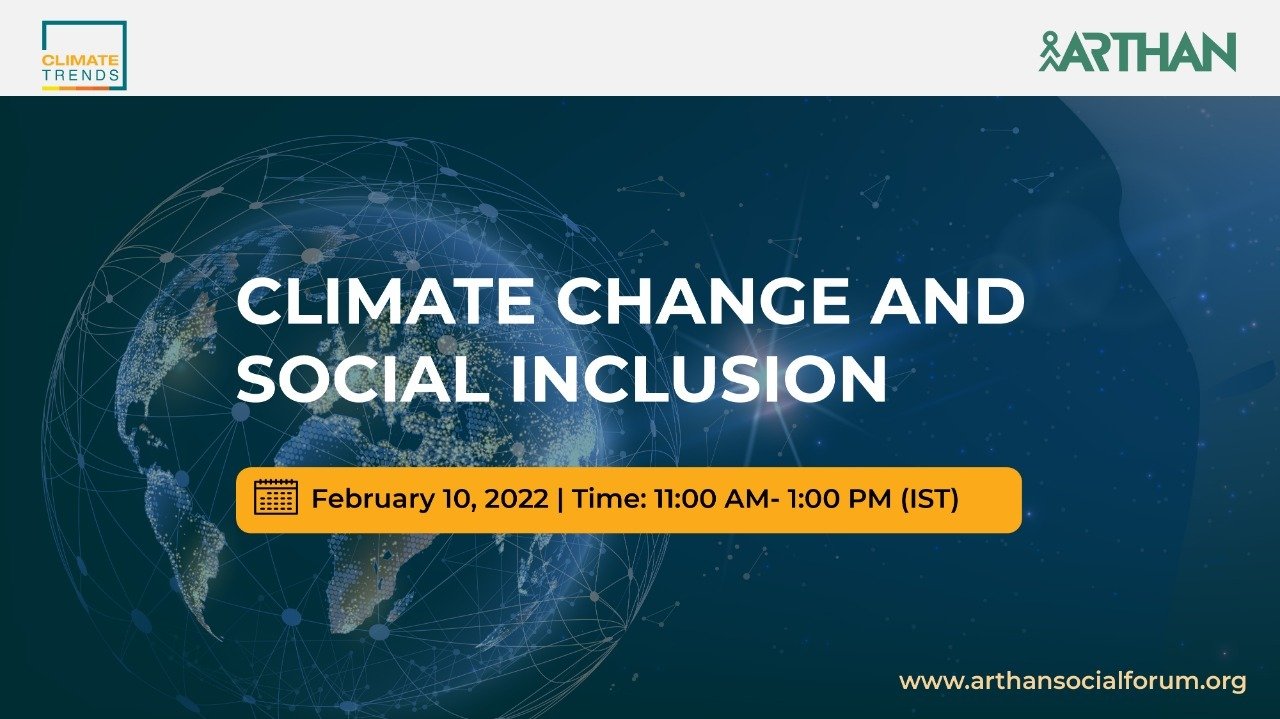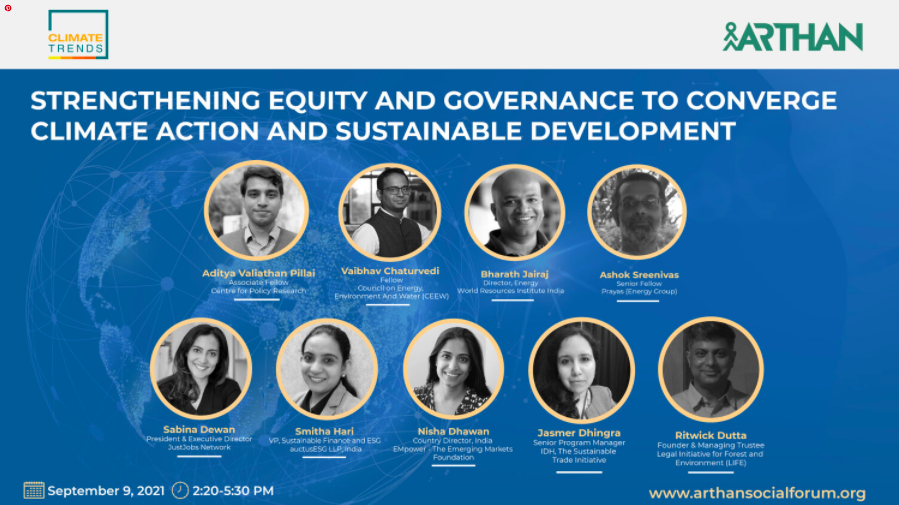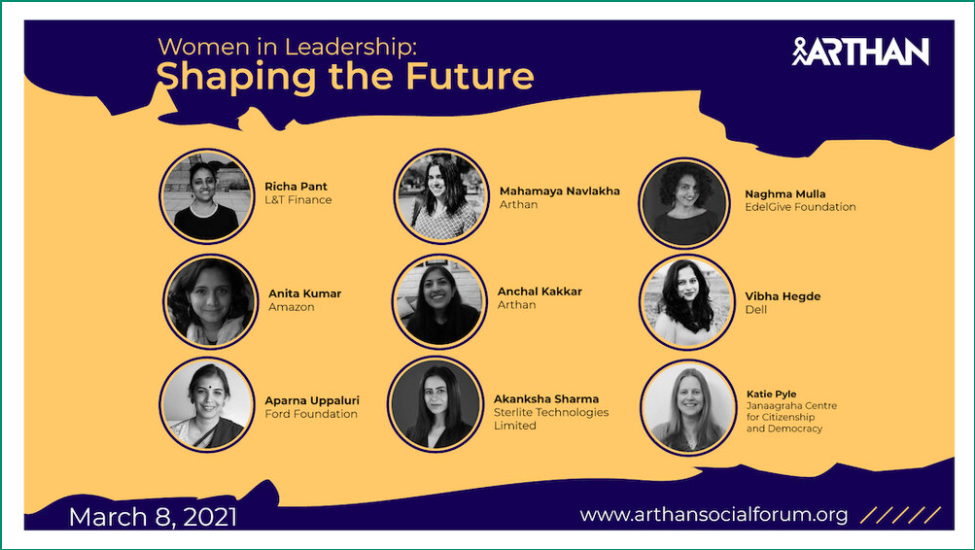climate asia: unpacking jobs, community action, and funding
21-22 April, 2022
We hosted dialogues with experts from across the Climate spectrum on topics ranging from the future of work to talent in the climate space to the funding landscape and civil, community and grassroots action.
We spoke to key experts from critical climate organisations to understand the talent demands and jobs available, and assess skill gaps within the sector. Our goal is to enable discussions, and knowledge sharing and equip the sector with the required information to overcome organizational level talent/skill deficit in this sector.
There were four panels:
Unpacking the Climate Landscape through an Asian perspective
This panel threw light on the latest released IPCC report focusing on mitigation and what we can do to stop climate change. We also discussed what measures nations could take and the commitments that can be made in COP 27 after the IPCC report. We also highlighted Climate Asia’s role in building a larger climate ecosystem and strengthening our commitment to climate goals.
Tackling climate change through community action and grassroots solutions
This panel discussion explained how micro policies focusing on local action can have better outcomes for South Asia and India than macro-level policies that do not take into account geographical distinctions. A grassroots approach needs to be taken to create effective climate action, by involving the communities that are directly affected.
Funding Landscape of the Climate space - VC, Grants, and Philanthropy
A discussion on venture philanthropy, ESG, challenges around impact investment and funding in India, and what steps could be taken to address the climate crisis from a funder’s lens. This panel focused on social impact funders, impact investing, philanthropy, and organisational development.
Talent in the Climate Space: Green Jobs & Career Transitions
Green skills are essential to the transition towards a green economy, with the ILO estimating 24 million jobs worldwide could be created by the green economy by 2030”. The panel discussion covered the essential green skills needed, the industries seeing a rise in demand for green jobs and what needs to be done to achieve this transition towards a greener economy.
impact of climate change on agricultural livelihoods of women
8 March, 2022
Climate change has been a threat to livelihoods. Women have been disproportionately burdened by the vagaries of climate. Women's vulnerability to climate change is attributed to many factors- social, economic, and cultural. The aim of this panel discussion wasis to understand the intricacies of how climate change affects vary unevenly among gender and to look for solutions to foster gender parity and improve outcomes for women in the world of work.
climate change and social inclusion
10 February, 2022
A closed group roundtable in collaboration with Climate Trends, attended by funders and social sector organisations working in the space of health, social justice, gender equality, and women empowerment. This series, designed as a conversation starter, aimed to break the silos between the climate community and the wider social sector in India by enhancing their understanding of climate change, its impact on their work, and how they can build strategies to address climate impacts in their sphere of influence. Speakers were Aarti Khosla, Director, Climate Trends; Satyam Vyas, Founder & CEO, Climate Asia; Dr. Purnima Prabhakaran, Deputy Director, PHFI; Nisha Dhawan, Country Director, India, EMpower; Asif Shaikh, Founder & CEO, Jan Sahas.
Strengthening equity and governance to converge climate action and sustainable development
9 September 2021
The second forum in the three part ‘climate series’ organised by Arthan and Climate Trends was held on September 9, 2021. For over three decades, countries across the world have been discussing pathways to achieve sustainable development and address the global threat of climate change. These two issues are intimately interconnected – climate impacts threaten any prospect of a sustainable future, and a country’s climate response could either generate co-benefits or risks for humans and nature. Therefore, understanding these linkages and finding convergent solutions towards both is now a critical requirement.
Government action is critical to addressing social, political and cultural inequities, and as such, addressing these will also bring climate action. Both the goals are not divergent. Increasingly, global and national debates are focusing on the importance of strengthening equity and governance as a convergent solution. Climate change affects populations unevenly, with the vulnerable and marginalized at greatest risk depending on their socioeconomic status. Therefore, a country’s national climate policies and developmental programmes need to be designed with equity as a central theme. Key to achieving this is promoting and strengthening inclusive governance that addresses the intersections of equity, climate impacts and development. Inclusive governance practices, inclusive policy making, increased transparency and accountability lie at the heart of action to mitigate climate change. There is a need to increase focus on the links of climate action with governance, institutional, social and political issues.
Session 1: Understanding regulatory, legal and political barriers to a clean energy transition.
Session 2: Women’s economic empowerment and opportunities for climate action
Session 3: Creating effective institutions for lasting change
CLIMATE ACTION: AN INTERSECTIONAL APPROACH
24 June, 2021
Climate change is a “threat multiplier”, worsening existing vulnerabilities and injustices. Its effects on people vary, based on race, gender, class, and socio-economic status. For the climate community, an intersectional approach means going beyond framing climate change merely as a scientific problem or reinforcing quick technological fixes. Marginalised communities experience climate impacts unevenly and lack resources to adapt to climate change. Therefore, solutions to climate change need to be people-centred, inclusive and holistic instead of deepening existing hierarchies. Finding a common ground to start a conversation instead of diving into science is more important to drive climate action.
WOMEN IN LEADERSHIP: SHAPING THE FUTURE
8 March, 2021
For many years now, a lot has been said about women in leadership positions - many articles and discussion forums talk about the lessons that we all can learn from women on being extremely effective leaders. The onset of the pandemic brought this conversation to the forefront, with many organisations and even nations with women showing better performance on various indicators. According to an analysis published in the Harvard Business Review in December 2020, women were rated to be more effective with indicators that they performed better in a crisis.
Noting the efforts and the effectiveness of women in fighting against the effects of the global pandemic, ‘Women in leadership: achieving an equal future in a COVID-19 world’ was identified as the theme for the International Women’s Day 2021 by the UN.
making technology gender inclusive
Arthan, in collaboration with Breakthrough, hosted sessions to understand how technology can be made gender friendly and more accessible by women and girls. In the context of an increased gender gap in the use and access to technology in the pandemic, we brought together different stakeholders funders, experts, NGOs and policy makers to discuss solution-specific strategies.
Evidence shows that availability, access and usage of technology is highly gendered. According to a report - ‘State of the Internet Traffic Trend’, there is more than a 40% rise in the internet usage in the last few months. Dependence on digital medium of work and interaction skyrocketed for the social sector ventures as well. Along with the existing social media platforms to build awareness and engagement on social issues, video calling applications are being used for training/seminar/knowledge transfer purposes. Though shifting to digital spaces definitely made it easy to connect a large number of people with very limited resources, access still remains a challenge for people at the last mile.
Globally, there are 250 million fewer women online than men, and the gap is widening - from 11 per cent in 2013 to 12 per cent in 2016 (ITU, 2016). Women and girls being at the edge - when it comes to access and use of technology and gadgets, makes it very difficult for organisations working with women and girls to substitute physical interfaces with digital tools. Therefore, in the current context the entire digital interaction gets limited with a very small class of the society and excludes the most marginalised.







